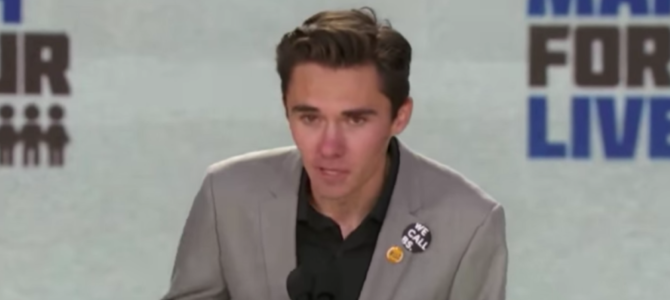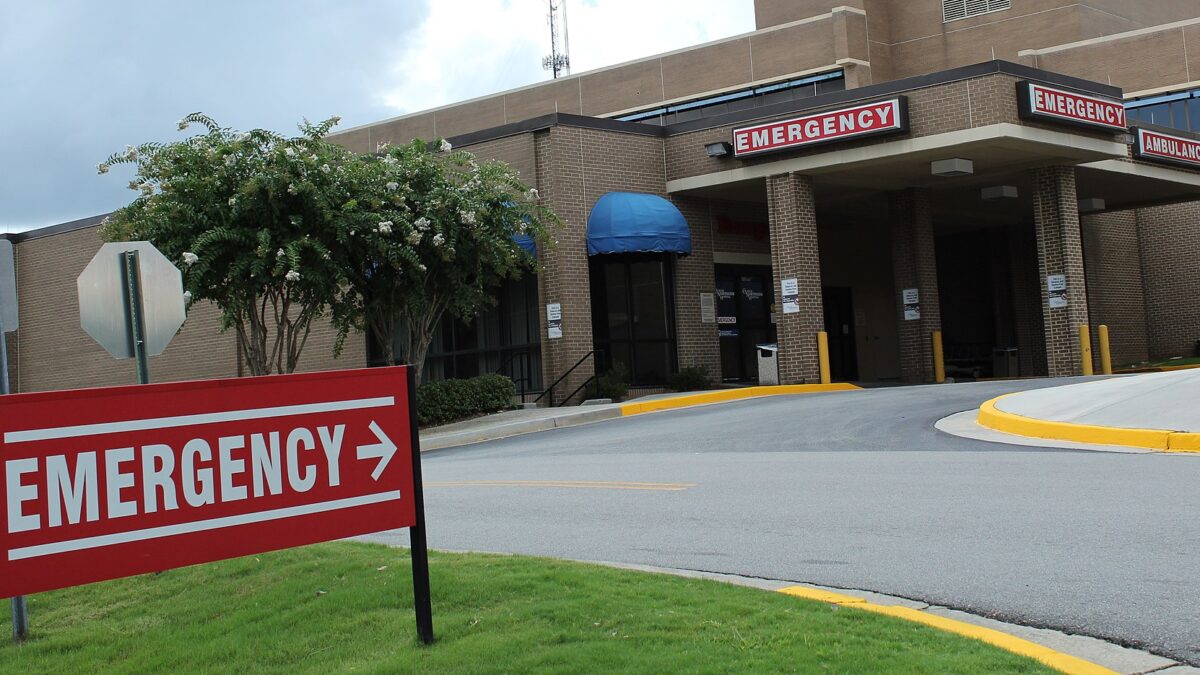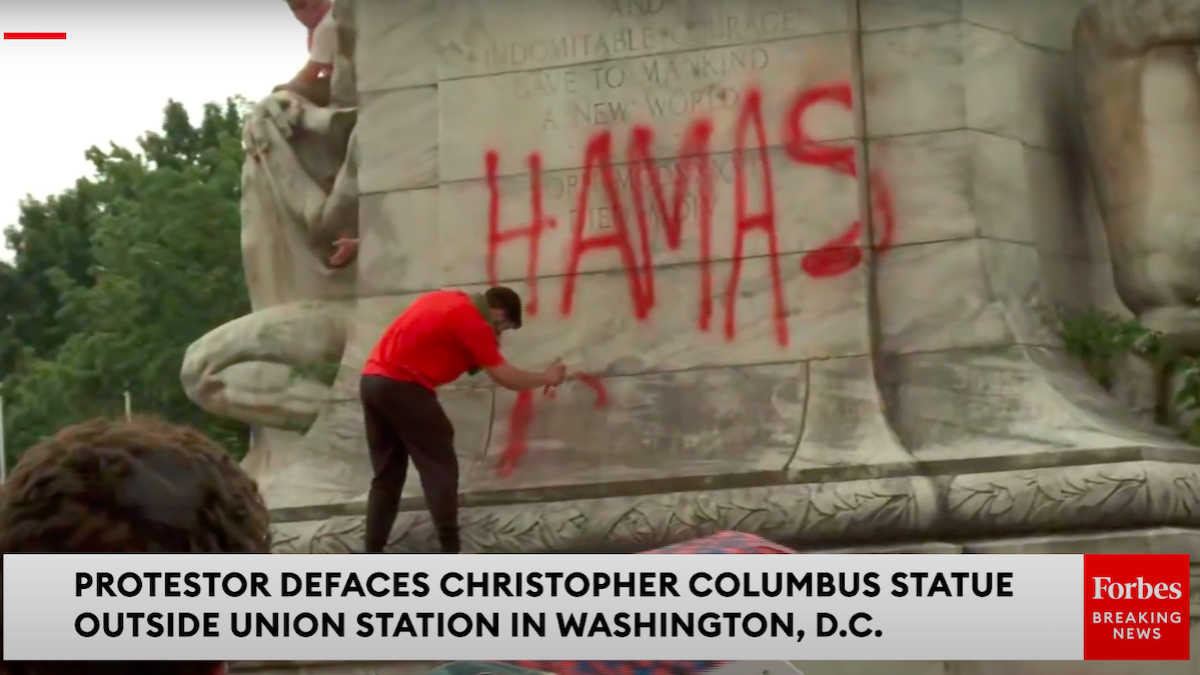
In case you haven’t noticed, progressivism has become more of a religion than a political philosophy. Like Lutherans or Muslims, when gathering together, progressives gleefully sing their liturgical chants. Like Catholics, they have their own version of heresy trials whereupon those declared guilty of false doctrine are deemed unwelcome to teach in their presence. And like devotees of all faiths, progressives fawn over their pious youth.
“These teenage survivors of the Parkland school shooting are inspiring,” progressives tell us. “Look how they’re tirelessly serving the progressive god of gun control. Look at their courageous devotion as they rebuke powerful NRA puppets like Marco Rubio.”
In a recent article for the New Yorker, Rebecca Mead takes this fawning to hagiographic heights. She begins by casting Emma Gonzales as a modern-day Joan of Arc.
“In its restraint, its symbolism, and its palpable emotion, González’s silence was a remarkable piece of political expression,” she writes. “Her appearance also offered an uncanny echo of one of the most indelible performances in the history of cinema: that of Renée Maria Falconetti, who starred in Carl Theodor Dreyer’s classic silent film from 1928, ‘The Passion of Joan of Arc.'”
Mead then concludes her article by elevating Gonzales and her pro-gun control classmates to messianic status.
‘Maybe the adults have gotten used to saying, ‘It is what it is,’ but if us students have learned anything, it’s that if you don’t study you will fail. And in this case, if you actively do nothing, people continually end up dead, so it’s time to start doing something,’ González said in her speech in Fort Lauderdale, in February. ‘We’re going to be the kids you read about in textbooks.’ If they muster in sufficient numbers in November, 2018, it’s not beyond the bounds of possibility that, unlike most young people, they may be correct in this assessment. In the meantime, our urgent need for the illumination that they seem to offer—for the blunt, righteous conviction they uphold—is another indication, were it needed, that a new kind of medievalism is upon us. Our potential saviors gleam all the more brightly against the pervasive political and civic darkness of the moment.
It’s not surprising that those who believe that the path to salvation is paved with progressive political victories are quick to cast their heroes in religious roles. However, if one wants to compare the Parkland students to figures of faith, there’s a far better fit found in the child preachers of Pentecostalism.
In 2015, Samantha Shapiro wrote a fascinating article for The New York Times on the phenomenon of Brazil’s child preachers, of which there are thousands. Shapiro profiles a handful of them, including 11-year-old Alani Santos, who has, according to her parents, been performing healing miracles since infancy; Alex Silva, who at 13 was preaching to an audience of half a million; and Mathaeus Moraes who at 10, was selling up to 1,000 DVDs of his sermons a month.
As these children show, there’s money to be made if your young son is remarkably adept at aping adult preachers and if devotees are convinced that your daughter can pour out miraculous healing, so it’s not surprising that some Brazilian parents are happy to throw their Pentecostal tykes into the spotlight. But why is there such a demand from those who don’t stand to profit from them? Why do the Pentecostal faithful flock to child preachers in a way that Catholics, Presbyterians, and virtually every other group on the Christendom spectrum don’t?
For most Christians (I hope), a pastor’s job is to teach his sheep who Christ is and what He has done for them, something that a pastor can only do once he’s developed sufficient understanding of the Scriptures and a sufficient ability to convey the truths therein — in other words, once he’s reached adulthood. Likewise, for sacramental Christians, proof of God’s love for us is found in baptism and the Lord’s Supper, where He unites us to Himself and His forgiveness.
Having rejected the efficacy of baptism and the Lord’s Supper, however, Pentecostals have manufactured substitute sacraments and insist that proof of God’s love is found in charismatic gifts like speaking in tongues and healing on command. A preacher’s job, therefore, is more cathartic than didactic for Pentecostals. Instead of telling you what it means to be saved, his purpose is to make you feel saved by verifying that the mystical things you’ve experienced are genuine.
And surely there’s no better proof that God’s Spirit has genuinely descended on you than the ministry of children. When God is speaking through the mouth of an eight-year-old boy who can’t even understand algebra, when God is healing you through the hands of an 11-year-old girl who is far too innocent for charlatanism, you have no reason to doubt that what you’ve experienced in their presence is of divine origin and that you truly do possess the love of God.
Progressivism is similar to Pentecostalism in this regard. The purpose of progressive preachers is not so much to teach the faithful the specifics of policy. If it were, progressives wouldn’t equate understanding how guns work with arguing about how many angels can dance on the head of a pin. Rather, the purpose of progressive preachers is to confirm the spiritual feelings of the faithful — to reaffirm that they are right to consider themselves victims of Republican oppression and conservative cruelty, right to believe they deserve a place amongst the protesting saints of Selma, and right to believe the god of social justice has called them to build his kingdom on earth. And, like the Pentecostals, child preachers offer progressives the greatest validation of these inward feelings.
“Who cares if these children are just repeating the talking points we gave them,” the progressives declare. “The important thing is that these innocent, uncorrupted souls are affirming the obvious truth of our cause. And if the unbelievers scoff at the divinely inspired ministry of children, this only confirms the wickedness of their unbelief.
Who cares if we’re not actually learning anything from them, or if much of what they say is factually inaccurate? When these teens prophesy against the enemies of righteousness, they confirm what we already felt in our hearts — that we are the holy ones marching toward glory. So come, let’s put on a glorious revival where these little anointed ones will condemn the sinners, and inspire us faithful saints to conquer the world.”
The problem with child preachers, however, is that they eventually grow up to discover that the world is not so easily conquered and that the faithful crowds are, in fact, rather fickle. As the child preachers of Pentecostalism become post-pubescent, the novelty will wear off, the crowds will thin, and they will see that sin and sorrow are still running rampant. In that moment, they’ll have to wrestle with an ugly series of questions.
“Was I a fraud? Was I failure? And did the adults who put me in the spotlight know all along how things were going to go? Did they callously set me up for bitter disappointment just because they wanted a quick buck or a momentary hit of religious euphoria?”
Likewise, the progressive teens of Parkland will have to answer similar questions. Today, Delaney Tarr may bask in the cheers of the crowd as she proclaims, “When they give us that inch, that bump stock ban, we will take a mile.” But once her progressive wunderkind luster fades, she’ll discover that actual progress in the fight against gun violence requires far less bluster and fame, far more work, far more patience, and far more grace offered to the demonized than her former fans will tolerate. At that point, she’ll have to ask herself whether she wants to serve the crowd and keep its acclaim or serve the cause and be labeled a heretic.
David Hogg may be impressed with his profane, sassy slander today, but eventually those using him for a spiritual high will grow bored and give the spotlight to someone else. After that happens, he’ll have to ask himself, “Was I really a prophet like Jeremiah using the incendiary language of my day to call sinners to repentance? Or was I just the progressive version of Duffey Strode, a pint-sized fire-and-brimestone-preaching-myna bird hoping for a pat on the head from the adults who exploited him in order to confirm their own righteousness?”
Rebecca Mead may view Emma Gonzales as a modern-day Joan of Arc, ready to conquer the forces of evil and usher in a kingdom of progressive peace. But even if Parkland teens miraculously manage to repeal the Second Amendment, innocent children may still be shot down in cold blood. And when that happens, those who were identified as the gun violence messiahs will be forced to view themselves as either miserable failures or foolish pawns.
Progressives may love the mystical validation that the child preachers of Parkland offer them. But it is beyond selfish and unfair to place the prophetic yoke upon the necks of teenagers. These traumatized children need our support, our wisdom, our guidance, our hard work, and our promise to do all we rightfully can to protect all children from gun violence. Above all, the students of Parkland need our prayers. The last thing they need, however, is our pulpit.









